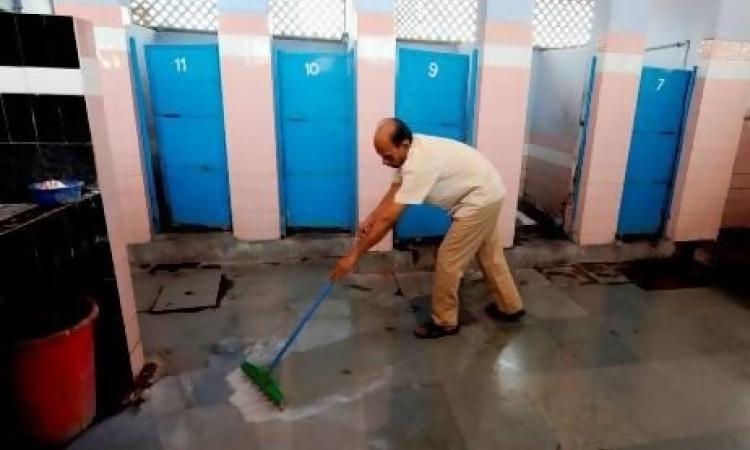
Rating machines to help users rate cleanliness and hygiene levels of public toilets in Mumbai
With the aim of improving cleanliness in public toilets, the Brihanmumbai Municipal Corporation has initiated a system where users can rate lavatories. Machines have been installed in 50 public toilets across the city where users can rate the toilets based on cleanliness levels as clean, average and unclean by pressing green, yellow or red buttons on the machines. These public lavatories have been maintained by private housekeeping agencies. The move is expected to improve operation and maintenance of these toilets.
Community toilets in Delhi's JJ slum clusters to reduce open defecation
Four hundred and ninety-five community toilets have been inaugurated in Jhuggi Jhopri (JJ) clusters across seven constituencies in the national capital. The Delhi Urban Shelter Improvement Board (DUSIB) has set a target of building 10,000 community toilets across slum clusters by March 31, 2017, to make the capital open defecation free. So far, 4,119 toilets have either been built or renovated. The DUSIB has deployed special teams to inspect the operation and maintenance of community toilet complexes across the slum clusters.
Kolkata awarded for its innovative solid waste management
Kolkata has been awarded for innovations in solid waste management along with 10 other cities at the 40 Mayors Summit held in Mexico City. The city has achieved significant improvement in waste segregation through the Kolkata Solid Waste Management Improvement Project. Apart from close to 60 percent of waste segregated at source, further segregation occurs at the corporation’s various transfer stations.
Local bodies asked to build more public toilets for girls
The Kerala State Commission for Protection of Child Rights has asked local bodies to ensure that adequate toilets are available for girls and women in public places and in schools. Though many schools claim to have adequate toilets, the usability of most of them is highly questionable. Girl students suffer the most due to the absence of toilets in schools, leading to a variety of urological ailments over a period of time.
Indian Railways equips passenger coaches with bio-toilets
The Indian Railways has installed bio-toilets in 45,000 passenger coaches so far; the Railways plans to equip all coaches with these improved toilets by 2019. Close to 900 trains have been equipped with bio-toilets either completely or in parts. Going forward, all new coaches will be equipped with these bio-degradable toilets so that excreta can be contained in compartments and degraded using micro-organisms.
This is a roundup of important sanitation related news published between December 3 and 9, 2016.
Image courtesy: The National